
SABIN CENTER FOR CLIMATE CHANGE LAW
ANNUAL REPORT
January to December 2023

In 2024, the Sabin Center for Climate Change Law celebrates its 15th year. It has been a remarkable journey so far, as we have traced and advanced the development of the field in real time. In the past we have issued semiannual reports, detailing our efforts to develop and advance innovative legal tools to combat the climate crisis, advance climate justice, and train the next generation of leaders in the field. This year we introduce our first annual report, which highlights and synthesizes our cutting-edge research and innovative engagements in 2023. We hope you find it a compelling showcase of the Center’s wide range of activities.
Over the last year, we have expanded our team, adding five new lawyers, as well as our first full-time communications and operations staff. At 14 full-time lawyers—along with several nonresident and adjunct fellows, visiting scholars, and student interns—we are larger and more impactful than we have ever been.
This robust team has pursued an expanded and intensified scope of research and engagement. In the last year, we have, among other things:
• submitted amicus briefs to international tribunals and domestic courts, and comments to agencies developing regulations or conducting environmental review
• launched a major new collaboration with the Columbia Center for Sustainable Investment and built out work under our various existing initiatives
• published books, law review articles, major reports, and working papers that have helped frame climate law discourse and offered deep dives into emerging areas
• Inflation Reduction Act Tracker launched three new online resources—the , the Climate Leadership and Community Protection Act Scoping Plan TrackerCommunity Benefits Agreements Database , and the
• and developed our social media presence revamped our Climate Law Blog
• given numerous interviews for TV, radio, and print media, totaling over 350 media mentions; and
• hosted, cohosted, and participated in numerous events at Columbia Law School and at universities and professional conferences around the world
We hope this inaugural annual report shows the Sabin Center’s impact across the climate spectrum—in areas ranging from climate litigation to carbon management, urban innovation, environmental justice, energy transition, climate and financial regulation, and so much more.
A note of thanks: We greatly appreciate the faculty, staff, and students who help shape our work in these key areas and give it life. We also extend our gratitude to our generous funders and to the Columbia Law School and the Columbia Climate School.
We are in the midst of a true climate emergency. Our mission at the Sabin Center is as vital as ever. We encourage you to visit our website (climate.law.columbia.edu), to join our free mailing lists (climate.law.columbia.edu/content/join-our-mailing-lists), and to register for our events as we continue to develop our programming. We look forward to what 2024 has in store for us as we strive to make the world cleaner, healthier, and more just.

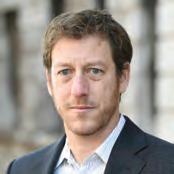

Program Areas: The Sabin Center currently focuses its work within four programmatic areas:




Cross-cutting Issues and Initiatives
Energy Law
Environmental and Land Use Law
International and Foreign Law
The Center undertakes applied research, provides thought leadership, and directly engages with a wide range of governmental and nongovernmental actors at the international, national, state, and local levels.
Michael Gerrard Faculty Founder, Director
Michael Burger Executive Director
Romany Webb Deputy Director
Annual Report | 1
Cross-cutting Issues and Initiatives
CLIMATE
LITIGATION ON THE RISE
In recent years, there has been a significant surge in climate litigation worldwide. The Sabin Center plays a vital role in providing a comprehensive set of independent scholarship and free access resources for practitioners and researchers in the field. In addition to tracking and analyzing global climate change litigation, the Sabin Center actively contributes to legal proceedings by submitting amicus briefs in both US and international contexts.
Sabin Center and UNEP Report on Global Climate Litigation
In July 2023, the Sabin Center and the United Nations Environment Programme published the Global Climate Litigation Report: 2023 Status Review, which found that the number of climate cases has more than doubled in five years and is a key tool in advancing climate justice.


Within 24 hours of the launch,
205 articles citing the report were published in 182 media outlets in seven languages across 38 countries
Global Climate Litigation Report: 2023 Status Review
“There is a distressingly growing gap between the level of greenhouse gas reductions the world needs to achieve in order to meet its temperature targets, and the actions that governments are actually taking to lower emissions. This inevitably will lead more people to resort to the courts. This report will be an invaluable resource for everyone who wants to achieve the best possible outcome in judicial forums, and to understand what is and is not possible there.” —Michael Gerrard, Faculty Founder, Director
“Climate change is front and center in courtrooms around the world. The third update to UNEP’s global climate litigation survey provides a comprehensive overview of the state of play, along with a framework for understanding the promise and the limits of the judicial power to push governments and corporate actors further, faster, to meet the demands of the climate crisis.” —Michael Burger, Executive Director
Other Publications and Blog Posts
Climate Change in the Courts: A 2023 Retrospective
• , by Maria Antonia Tigre and Margaret Barry (December 2023)
• A deep red state just delivered a huge win for climate justice, op-ed by Michael B. Gerrard, MSNBC (August 16, 2023)
• The Willow Project Heads to Court: Sabin Center Files Amicus Brief in Support of Plaintiffs Challenging BLM’s Approval of the Project, by Jessica Wentz (July 31, 2023)
• Why Climate Litigation in South Africa Matters, by Chris McConnachie (June 21, 2023)
• Cities, counties, and states score major procedural win in climate liability suits against fossil fuel companies, by Korey Silverman-Roati (May 12, 2023)
• Rethinking the Willow Project: Did BLM have Other Options?, by Romany Webb (May 10, 2023)
• Status Report on Principles of International and Human Rights Law Relevant to Climate Change, by Katelyn Horne, Maria Antonia Tigre, and Michael B. Gerrard (March 2023)
• Just Transition Litigation in Latin America: An Initial Categorization of Climate Litigation Cases Amid the Energy Transition, by Maria Antonia Tigre, Lorena Zenteno, Marlies Hesselman, Natalia Urzola, Pedro Cisterna-Gaete, and Riccardo Luporini (January 2023)
Project Spotlight
The Sabin Center’s Peer Review Network of Climate Litigation includes practitioners and scholars from around the world who review the Sabin Center’s Global Climate Change Litigation Database and ensure that it is comprehensive and up to date. The Network currently includes
137 scholars in 109 jurisdictions and 19 international or regional adjudicatory courts and tribunals or quasi-judicial bodies.
The Network also hosts a series of webinars on key trends in climate litigation (see climate.law.columbia.edu/content/ global-network-peer-reviewers-climate-litigation), and national rapporteurs contribute to our blog series and other publications.
Global Climate Litigation Report 2023 Status Review 2 | Annual Report
Select blog posts by national rapporteurs are listed below:
• Navigating the Intersection of Climate Change and the Law of the Sea: Exploring the ITLOS Advisory Opinion’s Substantive Content, by Maria José Alarcon and Maria Antonia Tigre (April 24, 2023)
• The ICJ’s Advisory Opinion on Climate Change: What Happens Now?, by Maria Antonia Tigre and Jorge Alejandro Carrillo Banuelos (March 29, 2023)
• A Request for an Advisory Opinion at the Inter-American Court of Human Rights: Initial Reactions, by Maria Antonia Tigre, Natalia Urzola, and Juan Sebastian Castellanos (February 17, 2023)
Other Activities
• amicus brief in the D.C. Circuit Court of Appeals on behalf of the National League of Cities and the U.S. Conference of Mayors, in opposition to a challenge to EPA’s vehicle GHG emissions standards that was filed by a coalition of state attorneys general and fossil fuel industry groups, the Texas v. EPA case. The Sabin Center filed an
• Michael Gerrard gave numerous virtual and in-person talks about climate litigation, including to the Committee on Science, Technology, and Law of the National Academies of Sciences; at an American Inns of Court dinner; at a New York Judicial Institute program on “Climate Science and Climate Litigation”; and to the British Institute of International and Comparative Law conference. Gerrard spoke about global climate litigation to a joint meeting of the judges of the Inter-American, European, and African courts of human rights, held in San Jose, Costa Rica; he also spoke at the Columbia Business School Executive Education program, “Business and Climate: The Journey to Net Zero.”
• Michael Burger spoke on a webinar titled “Climate Litigation: This Time It’s Personal,” organized by the University of Sorbonne (Paris 1), Science Po, IDDRI, and the Institut des Sciences Juridique et Philosophique de la Sorbonne; he also spoke about climate litigation and corporate accountability at a training organized by the Columbia Climate School and Lamont Doherty Earth Observatory, about the CRC’s General Comment on children and climate change, and about climate litigation in Brazil at events hosted by Columbia Law School.
• Burger and Martin Lockman participated in a conference and roundtable on climate litigation risk in London as part of the Sabin Center’s ongoing collaboration with the WTW Research Network.
• Maria Antonia Tigre gave numerous talks on global climate change litigation, including at an event hosted at Columbia Law School by the Sabin Center and Observatório do Clima on “Strategic Climate Change Litigation in Brazil—2020 to 2023”; at the Grantham Research Institute, London School of Economics and Political Science, on “Global Trends in Climate Litigation 2023: Report Launch. She spoke at a public hearing at the Brazilian Conselho Nacional de
Justiça on the quantification of environmental damage; she spoke at several workshops and delivered lectures at the University of Graz, ELTE University, Aarhus University, the University of Singapore, the University of Lisbon, Berkeley Law School, and the GNHRE Summer/ Winter School 2023 on Latin American perspectives and on just transition litigation; she also spoke about just transition litigation at the Institute Ayara, and she presented at the American Bar Association about “Recognizing the Rights of Nature.”
• Tigre and Gerrard presented at a New York State Bar Association conference on “Climate Change Litigation After Milieudefensie v. Royal Dutch Shell.”
Media Coverage
• In August 2023, a group of young people in Montana won a “landmark lawsuit” in Held v. Montana, the first constitutional climate trial in the United States, confronting the state’s responsibility for climate change. Sabin Center staff were extensively interviewed by the media about the decision. A full list of the media coverage is available at climate.law.columbia.edu/news/sabin-center-staff-weigh-heldv-montana-case. The Climate School also published a roundup of Sabin Center media coverage related to the trial.
Other Media Mentions
• 18 California Kids Sue EPA For “Allowing” Dangerous Emissions, Mother Jones (December 13, 2023)
• Climate change affects your life in 3 big ways, a new report warns, NPR (November 14, 2023)
• Why Hawaii became a hotbed of legal activism to protect the climate, Phys.org (November 2, 2023)
• California’s Fossil Fuel Lawsuit Could Mark a Turning Point in the Effort for Climate Change Accountability, Sierra (October 26, 2023)
• Climate Fight Prevails in Court as Political Inertia Persists, The Energy Mix (October 9, 2023)
• ‘Truly a David and Goliath Case’: Six young people take 32 countries to court in unprecedented case, CNN (September 27, 2023)
• Youth Bring Climate Case to European Rights Court, Barron’s (September 26, 2023)
• California tries to make its case against oil companies in climate lawsuit, CBS News (September 18, 2023)
• New Research Shows Direct Link Between Greenhouse Gas Emissions and Polar Bear Decline, Inside Climate News (September 3, 2023)
king Climate Offenders to Court
• Ta , Climate One Podcast, Law and Oil (July 7, 2023)
Annual Report | 3
HARNESSING THE POWER OF CARBON MANAGEMENT AND NEGATIVE EMISSIONS TECHNOLOGIES
The Sabin Center has continued to grow its work on Carbon Management and Negative Emissions. The Center has played a leading role in efforts to analyze and develop legal frameworks for carbon dioxide removal, with a particular focus on ocean-based carbon removal approaches, and recently launched a new project to explore legal issues associated with methane removal
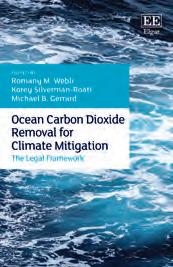
In April 2023, Sabin Center experts Romany Webb, Korey SilvermanRoati, and Michael Gerrard published a book on Ocean Carbon Dioxide Removal for Climate Mitigation: The Legal Framework. The book explores how the ocean could be used to remove and store carbon dioxide from the atmosphere, describing five commonly discussed ocean CDR techniques—rock-based ocean alkalinity enhancement (OAE), electrochemical OAE, ocean fertilization, artificial upwelling and downwelling, and seaweed cultivation—and exploring the legal issues that different techniques could raise. Read more about it at e-elgar.com/shop/usd/oceancarbon-dioxide-removal-for-climatemitigation-9781802208849.html.
Other Publications and Blog Posts
• Executive Actions to Ensure Safe and Responsible Ocean Carbon Dioxide Removal Research in the United States, by Romany Webb and Korey Silverman-Roati (November 2023). Read the blog post by the report’s authors at blogs.law.columbia.edu/ climatechange/2023/11/20/executive-actions-to-ensure-safeand-responsible-ocean-carbon-dioxide-removal-research-in-theunited-states.
• An Update on the Evolving Legal Landscape for Ocean-Based Carbon Dioxide Removal, by Romany Webb (October 2023)
• Expert Insights on Best Practices for Community Benefits Agreements, by Matthew Eisenson and Romany Webb (September 2023)
• Permitting CO2 Pipelines, by Martin Lockman (September 2023)
• Developing Model Federal Legislation to Advance Safe and Responsible Ocean Carbon Dioxide Removal Research in the United States, by Romany M. Webb and Korey Silverman-Roati (March 2023)
Activities and Impact
• Romany Webb was appointed to several boards and committees, including the review panel for the National Ocean Partnership Program’s Marine Carbon Dioxide Removal research competition; the International Advisory Board for the Global ONCE project; the steering committee for a GEOMAR led project developing a “Guide to Best Practices in Ocean Alkalinity Enhancement Research”; and a panel charged with updating the American Geophysical Union’s Position Statement on Climate Intervention. The updated position statement was formally adopted by the American Geophysical Union board. In addition, Webb served on a steering committee for the Blue Carbon Law Symposium, helping to organize the event held at the University of Georgia. She was also appointed as an observer of the Carbon Business Council’s policy working group.
• Webb gave numerous talks on the legal framework for carbon dioxide removal, including at the Research Institute for Sustainability in Potsdam, Germany; at a conference at the University of Oslo Faculty of Law in Norway; at a briefing for Congressional staffers hosted by the National Academies of Sciences, Engineering, and Medicine; at Capitol Hill Ocean Week; at the UN Science Summit; at the Global Direct Air Capture Conference; at the MACAN Coastal and Ocean Acidification Workshop; and at a policy workshop hosted by the Carbon Business Council. Webb was also a guest at Monaco Ocean Week, where she participated in the inaugural legal roundtable hosted by the Fondation Prince Albert II de Monaco and presented on “The Adaptation of International and Domestic Law to Advance Ocean-Based Carbon Dioxide Removal.” She also spoke at a Climate Week event hosted by the Sabin Center and Ocean Visions about the legal and regulatory aspects of oceanbased carbon removal techniques and on a webinar on “Model Legislation to Advance Ocean CDR Research” hosted by Ocean Visions; she participated in a panel discussion on “Carbon Capture and Sequestration: State Initiatives, State Primacy, and Class VI Permitting” cohosted by the Sabin Center and Arnold & Porter; she participated in the US-Canada CDR Forum in Washington, DC; and she spoke at the fall meeting of the American Bar Association -
• Section of Environment, Energy, and Resources.
Korey Silverman-Roati continued to serve on the Scientific Adviso ry Board of the Germany CDRMare research group and attended the group’s Second Annual General Assembly in Germany.
• Silverman-Roati spoke on the topic of “Responsible Carbon Dioxide Removal (CDR) Research Governance in Practice” at the Ocean Visions Biennial Summit; he gave a presentation on legal frameworks for ocean CDR before the Greenhouse Gas Removal Indigenous Strategy Group, at the Third Annual Carbon Dioxide Removal Law & Policy Conference at American University, and to a monthly meeting of the Tribal Carbon Dioxide Removal Governance Working Group. He is serving on the working group in an advisory role.
Ocean Carbon Dioxide Removal for Climate
4 | Annual Report
Mitigation: The Legal Framework
• Silverman-Roati and Webb gave a presentation to the National Academies of Sciences, Engineering, and Medicine’s Committee on Atmospheric Methane Removal on “Legal Considerations for Atmospheric Methane Removal.”
Select Media Mentions
• Cutting Edge Legal Action on Climate Change: A Conversation with Professor & Lawyer Michael Gerrard, Espresso with Experts (November 20, 2023)
• US CO2 Infrastructure Buildout on Shaky Ground, Energy Intelligence (November 1, 2023)
• Scuttled CO2 pipeline renews debate about state hurdles, E&E EnergyWire (October 23, 2023)
• Harnessing the Ocean’s Power to Combat the Climate Crisis, The State of the Planet (April 21, 2023)
• On Earth Day, scientists tell us what 2050 could be like. Their answers might surprise you. USA Today (April 21, 2023)
• Can giving the ocean an antacid help curb climate change?, NBC News (February 11, 2023)
• What Is Blue Carbon and How Can It Help Fight Climate Change?, The State of the Planet (January 25, 2023)
AT THE FOREFRONT OF ENVIRONMENTAL JUSTICE
Climate change has made clear that diversity increases the power of potential solutions and the resilience to adverse impacts—for ecosystems, social systems, economic systems and their various hybrids and combinations. The Sabin Center is committed to developing content and engaging in environmental issues faced by vulnerable communities.
The Sabin Center worked with WE ACT for Environmental Justice on a project to develop model legislation related to environmental justice, cumulative impacts analysis, and permit renewals for polluting facilities: M.O.D.E.L for Empowering Communities
Michael Gerrard and Climate Justice Fellows Andrea Nishi and Emma Shumway worked with the Energy Bar Association, Center on Global Energy Policy, Dr. Diana Hernández of the Mailman School of Public Health, and a team of student volunteers on a research initiative exploring legal solutions to energy insecurity in the United States and Canada.
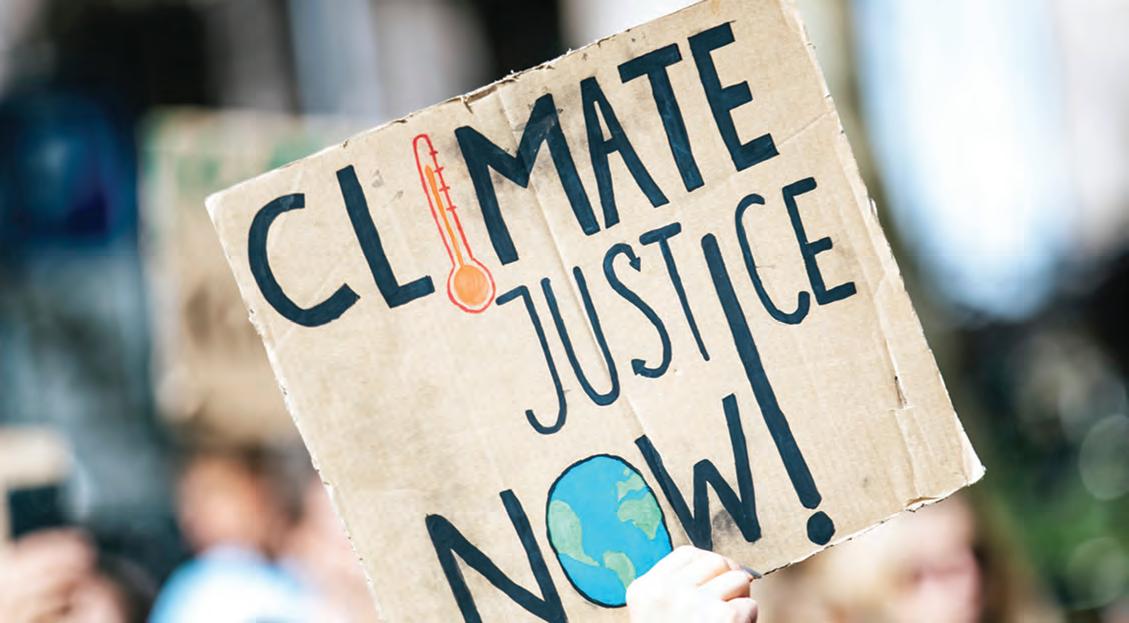
Annual Report | 5
HELPING CITIES ACT ON CLIMATE
The Sabin Center’s Cities Climate Law Initiative (CCLI) has provided thought leadership, resources, and direct assistance to dozens of cities to help them achieve their climate goals by addressing critical gaps and helping cities navigate legal obstacles to implementation.
In July 2023, the Sabin Center was proud to support the Smart Surfaces Coalition’s Cities For Smart Surfaces project to deploy solutions to improve health, reduce inequality, and slow climate impacts while helping families and cities save money. In September, Daniel Metzger joined the Sabin Center as a Smart Surfaces fellow, working on a range of climate mitigation and adaptation issues, with a particular focus on surfaces that combat urban heat and address other impacts of climate change.
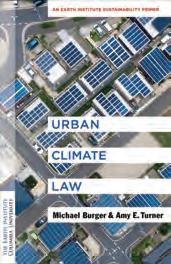
Featured Publication
Urban Climate Law: An Earth Institute Sustainability Primer, by Michael Burger and Amy Turner (October 2023)
This book examines the key issues surrounding climate mitigation policies across the buildings, transportation, waste, and energy sectors, with an emphasis on environmental justice.
Other Publications and Blog Posts
• New York State Court Upholds Local Law 97, by Amy Turner (November 6, 2023)
• The Legal Case for Equity in Local Climate Action Planning, by Amy Turner (October 2023)
• Using the Inflation Reduction Act to Combat Urban Heat, by Daniel J. Metzger (October 17, 2023)
• The Clean Energy Investment Tax Credit (ITC): Direct Pay Claimants’ Race Against Time, by Amy Turner (October 16, 2023)
• Proposed Regulations for Direct Pay Under the Inflation Reduction Act: Guidelines for Cities, by Amy Turner (June 27, 2023)
Activities and Impact
• amicus brief on behalf of the National League of Cities, the League of California Cities, and the California State Association of Counties, in California Restaurant Association v. City of Berkeley
The Sabin Center filed an , a case at the Ninth Circuit Court of Appeals.
• Amy Turner consulted with local governments and advocates on litigation developments relating to building decarbonization, including the dismissal of a lawsuit seeking to invalidate New York City’s Local Law 97 and the filing of a lawsuit seeking to invalidate New York State’s All Electric Buildings Act.
• Turner consulted with local governments in southern states on a range of new preemptive laws inhibiting local climate policies.
• Turner gave a number of talks on the Inflation Reduction Act’s “elective pay” mechanism for clean energy and clean transportation tax credits, including at the Urban Sustainability Directors Network October 2023 conference, at events hosted by America is All In in Orlando, Florida, and Columbus, Ohio. She also spoke on a webinar hosted by the Bloomberg Center for Public Innovation at Johns Hopkins and presented to members of C40 and Climate Mayors on the US EPA’s 2023 greenhouse gas emissions rules for power plants.
• Michael Gerrard gave numerous talks about the Inflation Reduction Act, including on live television on Now Tonight with Joshua Johnson on NBC Now; on KCBS; on a GovExec webinar; to the group Net Impact NYC; and at a Climate School event, “Climate Action After the Midterms: Inflation Reduction Act and West Virginia v. EPA.”
• Romany Webb presented on the Inflation Reduction Act at a meeting of the State Policy Network. She also delivered opening remarks on a webinar on “Tracking the Inflation Reduction Act: Benefits to Date from America’s Biggest Climate Investment,” cohosted by the Sabin Center and Environmental Defense Fund.
Select Media Mentions
• Winter blackouts more likely as NYC climate goals force shift to electrical heat, Gothamist (December 22, 2023)
• Climate law renewable credits hit nonprofit roadblock, E&E EnergyWire (December 8, 2023)
• How Can Cities Fight Climate Change and Still Stay Within Legal Guardrails?, State of the Planet (November 9, 2023)
• Plugged In: Local Governments and the IRA, 1A, NPR (August 17, 2023)
6 | Annual Report
Urban Climate Law: An Earth Institute Sustainability Primer
Energy Law
ACCELERATING THE CLEAN ENERGY TRANSITION
The Sabin Center seeks to advance energy system decarbonization and to encourage a more rational accounting of climate change–related impacts of energy use in the US and elsewhere. We have undertaken many activities within the
energy law space.
Featured Projects
Renewable Energy Legal Defense Initiative (RELDI)
RELDI facilitates and coordinates pro bono legal representation to local residents, community groups, and public interest organizations that support renewable energy development in their communities. RELDI has worked with local residents and community groups in Michigan, New York, and Ohio this year.
• RELDI senior fellow Matthew Eisenson, with assistance from Sidley Austin LLP, filed an amicus brief on behalf of various individuals and groups supporting renewable energy siting regulations promulgated by the New York State Office of Renewable Energy Siting.
• RELDI, in partnership with local counsel, submitted two briefs urging the Ohio Power Siting Board (OPSB) to approve the proposed 800-MW Oak Run Solar Project ( and dis.puc.state.oh.us/ViewImage. aspx?CMID=A1001001A23G31B53245F00103).
dis.puc.state.oh.us/ ViewImage.aspx?CMID=A1001001A23G10B20805F00066
• affirmed the OPSB’s permit for the Emerson Creek Wind Farm. RELDI assisted in providing legal representation to two local farmers who supported the project during the administrative proceeding and subsequent appeal. The Ohio Supreme Court
• Matthew Eisenson delivered a briefing to staff of the U.S. House Sustainable Energy and Environment Coalition (SEEC) on local obstacles to renewable energy facilities.
• Eisenson also presented a working paper on “Overcoming Unreasonably Burdensome Restrictions on the Use of Farmland for Solar Generation” to legal academics at PERC’s Permitting the Future Symposium at Case Western Reserve University.
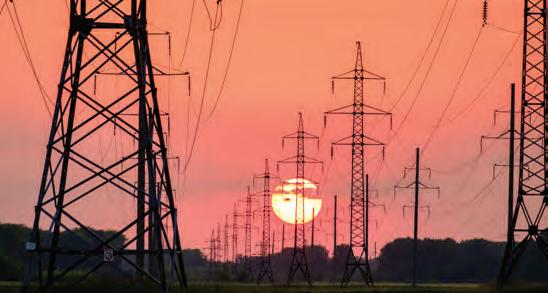
Featured Publication Opposition to Renewable Energy Facilities in the United States: May 2023 Edition, by Matthew Eisenson (May 2023)
This report finds that at least 228 local laws, ordinances, and policies have been enacted in 35 states to restrict renewable energy projects. This third edition of the report has been downloaded over 10,000 times and has been cited numerous times by media outlets.
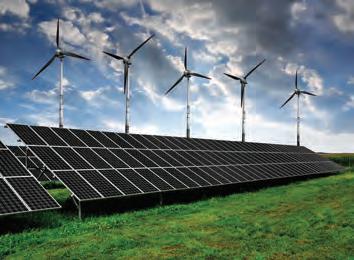
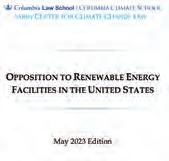
States: May 2023 Edition
Other Publications and Blog Posts
• Overcoming Unreasonably Burdensome Restrictions on the Use of Farmland for Solar Generation, by Matthew Eisenson (December 2023)
• DOE Proposes to Expand the Fast-Track Lane for Certain Clean Energy Projects–But Excludes Wind, by Jacob Elkin (December 22, 2023)
• Expert Insights on Best Practices for Community Benefits Agreements, by Matthew Eisenson and Romany M. Webb (September 2023)
es Need Enhanced Transparency and Carbon Accounting
• Transferred Emissions Are Still Emissions: Why Fossil Fuel Asset Sal , by Jack Arnold, Martin Lockman, Perrine Toledano, Martin Dietrich Brauch, Shraman Sen, and Michael Burger (May 2023)
Select Media Mentions
• Big Wins and Setbacks in 2023 for Biden’s Green Agenda, Voice of America (December 20, 2023)
• In Michigan, not-so-sunny prospects for solar farms, Grist (October 2, 2023)
• Report documents local backlash against renewable energy, E&E EnergyWire (July 20, 2023)
• Why the pushback against more renewable energy infrastructures?, NPR (June 14, 2023)
• Permission to Build, New York Times Newsletter (June 13, 2023)
• Hundreds of US localities restrict renewables siting, with 293 projects currently contested: Columbia report, Utility Dive (June 5, 2023)
• The debt-limit deal could help clean energy. But probably not much, Los Angeles Times (June 1, 2023)
Annual Report | 7
Legal Pathways to Deep Decarbonization in the United States (LPDD)
The Sabin Center and Widener University’s Environmental Law and Sustainability Center maintain the Model Laws for Deep Decarbonization in the United States website, which provides policymakers at the federal, state, and local levels with legal tools needed to transition away from fossil fuels.
Other Energy Activities and Impact
• The Sabin Center cohosted a meeting of the International Regulatory Futures Forum, which brings together top energy regulators from across the US, Europe, and Australia to discuss opportunities and challenges around energy system decarbonization.
More than 40 pro bono law firms are at work drafting additional model laws as part of this project.
The LPDD project has, to date, authored over 70 model laws applicable at the state, local, and federal levels addressing the different recommendations in the 2019 text, Legal Pathways to Deep Decarbonization in the United States
• Korey Silverman-Roati and Dan Whittle of Environmental Defense Fund (EDF) gave a presentation on “Cuba’s Energy Sector: Landscape, Assessment, and Recommendations” at an annual conference put on by the International Policy Research Center of Cuba’s Ministry of Foreign Affairs in Havana, Cuba.
The Center submitted
• comments on the Federal Energy Regulatory Commission (FERC)’s notice of proposed rulemaking on applications for permits to site interstate electric transmission.
The Center submitted
• comments on the Bureau of Ocean Energy Management (BOEM)’s notice of proposed rulemaking on risk management and financial assurance for Outer Continental Shelf (OCS) lease and grant obligations.
The Center submitted a
Most recently, the project has published a model state law on studying the workforce needs of a decarbonizing economy and a model federal law on amending the value for which coal projects may lease federal land to represent its true value. Earlier this year, the LPDD project published eight model laws on amending the federal permitting process for renewable energy, and it is currently working with Congressional staff in both the Senate and the House on permit reform legislation. The LPDD project’s outreach team continues to engage state, local, and federal policymakers to educate them about the resources available at our website.
Pathways to Deep Decarbonization in the United States
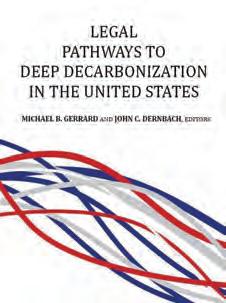
• comment letter addressing climate risks embedded in a proposed rule by the BOEM that would revise the financial assurance mechanisms that the United States uses to secure offshore decommissioning obligations.
• Martin Lockman presented the Sabin Center’s work on offshore oil platform decommissioning at a workshop on Industrial Policy hosted by the Yale Law School Center for Private Law.
• Emma Shumway presented on the consequences of labeling wood pellets as a renewable energy source at the annual American College of Environmental Lawyers conference in Park City, Utah. Her paper won the group’s award as the best law student note of the year.
• Michael Gerrard gave a talk, “Business and Climate: The Journey to Net Zero,” as part of the executive education program at Colum bia Business School; he also spoke about the Low-Income Home Energy Assistance Program at the Energy Opportunity Forum of Columbia’s Energy Opportunity Lab.
8 | Annual Report
Legal

ADVANCING THE CLIMATE LAW AND FINANCE NEXUS
The Sabin Center expanded its research on climate law and finance, exploring how legal tools can be used to ensure that climate-related financial risks are accounted for in policy and regulation at multiple scales of governance. Our transdisciplinary focus on the intersection of climate, law, and finance also seeks to support the alignment of business and finance to the energy transition, and to embed resiliency measures across all sectors of the economy.
Initiatives
The Sabin Center in collaboration with the Columbia Center on Sustainable Investment (CCSI) launched a new Climate Law & Finance Initiative (CLFI) this year. CLFI explores how legal tools can be used to ensure that climate-related financial risks are accounted for in policy and regulation at multiple scales of governance.
We also continued to grow the Initiative on Climate Risk and Resilience Law (ICRRL)—a joint initiative of the Sabin Center, Environmental Defense Fund, Institute for Policy Integrity at New York University School of Law, and Vanderbilt Law School. ICRRL aims to develop innovative legal solutions to mitigate and manage climate-related risks, including in the financial sector, and has been highly active in ongoing regulatory proceedings before the Securities and Exchange Commission and other federal bodies.
Publications and Blog Posts
• A Comparative Analysis of the SEC’s Climate Disclosure Proposal, by Charlie Assereto and Cynthia Hanawalt (December 15, 2023)
• The SEC’s Final Climate Disclosure Rule Must Respond to Emerging Legal Risks, by Chloe Field and Cynthia Hanawalt (December 11, 2023)
• The Major Questions Doctrine Is a Fundamental Threat to Environmental Protection. Should Congress Respond?, by Mike Burger and Cynthia Hanawalt (October 19, 2023)
• Decommissioning Liability at the End of Offshore Oil and Gas: A Review of International Obligations, National Laws, and Contractual Approaches in Ten Jurisdictions (August 2023)—a joint report by the Sabin Center and CCSI, that identifies risks in offshore decommissioning regimes around the world and provides recommendations to strengthen them
• Decommissioning Offshore Oil and Gas Infrastructure in the Face of Climate Change and the Energy Transition, by Martin Lockman and Martin Dietrich Brauch (August 31, 2023)
• Antitrust and Sustainability: A Landscape Analysis (July 2023)— another joint report by the Sabin Center and CCSI, which explores antitrust law’s impact on sustainability goals; read the press release at climate.law.columbia.edu/news/ccsi-and-sabin-center-releasenew-report-antitrust-and-sustainability-landscape-analysis
• Modelling Climate Litigation Risk for (Re)Insurers, by Martin Lockman (July 2023)
• A Climate Adaptation Toolkit for the Insurance Industry, by Martin Lockman (July 21, 2023)
• Reckoning with risk: Recent Developments in climate and U.S. financial regulation, by Eleonor Dyan Garcia (May 19, 2023)
• The Tragedy on the Financial Horizon Is Closer Than You Think, by Ilmi Granoff (May 4, 2023)
• Global Consensus Is Emerging on Corporate Scope 3 Disclosures. Will the SEC Lead or Lag? by Cynthia Hanawalt (March 28, 2023)
Annual Report | 9
Activities and Impact
The Sabin Center and EDF submitted
• joint comments to the Commodity Futures Trading Commission on potential amendments to its risk management program regulations; we also submitted joint comments on the Proposed Rule on the Disclosure of GHG Emissions and Climate-Related Financial Risk from the Federal Acquisition and Regulatory Council (FAR Council).
The Center submitted
• comments, jointly with the Columbia Center on Sustainable Investment, on EPA’s Request for Information on Its Low Emissions Electricity Program and GHG Corporate Reporting.
The Center submitted
• comments on the FAR Council’s Proposed Rule on the Disclosure of GHG emissions and Climate-Related Financial Risk.
The Center submitted
• comments on the New York Department of Financial Services’ Proposed Guidance for New York State Regulated Banking and Mortgage Institutions Relating to Management of Material Financial Risks from Climate Change.
• Michael Burger and Martin Lockman presented research on climate-related litigation risk as part of a Climate Week roundtable for insurers and (re)insurers hosted by Willis Towers Watson.
• Lockman participated in an executive dialogue session on insurance industry responses to climate change hosted by the University of Pennsylvania.
• Ilmi Granoff was appointed to the Climate-related Financial Risk Advisory Committee of the US Federal Government’s Financial Risk Oversight Council.
• Granoff guest lectured at The Wharton School of the University of Pennsylvania on the history of climate-related financial risk, its oversight and regulation; he provided a keynote speech at a dinner hosted by the Institute of Management Accountants and ClimateArc on climate risk data gaps; he also presented at the CFA Institute’s “Climate Risk and Return” conference; to a class at Boston University Law School and for the Environmental Law Society of Columbia Law School.
• Michael Gerrard spoke on a Columbia Sustainability Management program panel on “U.S. Securities & Exchange Commission’s Climate Disclosure” and was a featured guest on the Andrea Mitchell Center for Democracy Podcast, where he spoke about California’s new climate disclosure bills.

10 | Annual Report
Environmental and Land Use Law
International and Foreign Law
Decreasing greenhouse gas emissions and increasing resilience to climate impacts involve use of existing environmental, natural resource, and land use laws. They also demand creation of new approaches. Our current efforts focus on federal, state, and local laws and regulations related to air pollution; environmental impact assessment; public lands management; and zoning and land use controls.
Publications
• NY, New Jersey Adopt Laws Requiring Flood Risk Disclosure for Homebuyers, Tenants, by Michael B. Gerrard and Edward McTiernan, New York Law Journal (November 9, 2023)
• Commentary: New York homebuyers have the right to know a house’s flood risk, op-ed by Michael B. Gerrard and Joel Scata, Times Union (June 7, 2023)
New York’s Green Amendment: The First Decisions
• , by Michael B. Gerrard and Edward McTiernan, New York Law Journal (March 8, 2023)
Waste and Chemical Management in a 4°C World
• , by Michael B. Gerrard, Environmental Law Reporter (2023)
Activities and Impact
The Sabin Center submitted a
• comment letter addressing the climate impacts of the Bureau of Land Management’s “Conservation and Landscape Health” rulemaking, 88 Fed. Reg. 19582–19604, which proposed changes to BLM’s public leasing regime.
• comments on the Council on Environmental Qual The Center submitted ity’s Interim Guidance on Consideration of Greenhouse Gas Emissions and Climate Change in National Environmental Policy Act (NEPA) Reviews and on the Council’s Notice of Proposed Rulemaking on revisions to the NEPA implementing regulations.
Climate change is a global problem that demands a global response. The Sabin Center provides legal support for, and participates in, international efforts to address the causes and effects of climate change. We also track how foreign jurisdictions are addressing climate change through legal reforms and litigation, through our global climate change litigation database.
SABIN CENTER AT COP28
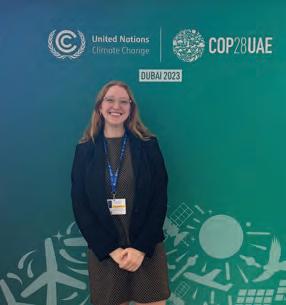
• amicus brief filed in U.S. District Court for the District of Alaska in support of plaintiffs in Sovereign Inupiat for a
The Center submitted an Living Arctic v. BLM and Center for Biological Diversity v. BLM
• Michael Gerrard spoke about the “Green Amendment” to the New York State Constitution for the annual Environmental Law Year in Review program at the New York City Bar Association. He also chaired the climate change panel at the American Law Institute’s annual Environmental Law conference in Arlington, Virginia; spoke on a webinar, “Natural Resources Symposium Redux,” about climate change developments since 2022; and gave several lectures on environmental law, including at a luncheon series held by Columbia Law School’s Public Interest/Public Service Law program. Gerrard also hosted U.S. Senator Sheldon Whitehouse in a series of talks and meetings at Columbia Law School. Senator Whitehouse was also a guest judge for the Law School’s environmental law moot court team.
Emma Shumway, Climate Justice Fellow, attended COP28 in Dubai, UAE, alongside the UK-based NGO Legal Response International (LRI), to provide free legal support to the delegations of developing countries. This was part of an ongoing collaboration between the Sabin Center and LRI. In her observations from COP28, Shumway notes that one of the major successes of the conference was the operationalization of the Loss and Damage Fund to provide monetary aid to developing countries suffering climate change impacts that cannot be addressed through adaptation or mitigation measures. While this should be celebrated as a victory, it is also important to recognize the potential weaknesses of the decision that have been highlighted by developing countries, including the lack of a longterm funding mechanism.
Annual Report | 11
Emma Shumway at COP28
HUMAN RIGHTS AND CLIMATE CHANGE
Climate change poses a very real threat to the enjoyment of human rights: sea level rise, heat waves, floods, drought, and other effects can cause death and injury, displace people from their homes, undermine food and water security, and otherwise interfere with the lives, health, and well-being of millions of people. The Sabin Center’s research explores how international human rights law can be used to enhance mitigation ambition and protect people from these effects.
Publications
• Competing Perspectives and Dialogue in Climate Change Advisory Opinions, by Maria Antonia Tigre and Armando Rocha, American Journal of International Law (AJIL) Unbound (2023)
• International Recognition of the Right to a Healthy Environment: What Is the Added Value for Latin America and the Caribbean?, by Maria Antonia Tigre, AJIL Unbound (2023) (special issue edited by John Knox, focused on the one-year anniversary of the United Nations General Assembly resolution on the right to a healthy environment)
• The ‘Fair Share’ of Climate Mitigation: Can Litigation Increase National Ambition for Brazil?, by Maria Antonia Tigre, Journal of Human Rights Practice (2023)
• What would a favorable ICJ AO look like and what would it mean for the progressive development of international law and broadly for climate action?, by Maria Antonia Tigre, Environmental Rights Review (2023)
Activities and Impact
• amicus brief to the Inter-American Court of Human Rights on climate law, human rights and climate science. The submission was in response to the Request for Advisory Opinion presented by Chile and Colombia. Read the blog at The Sabin Center submitted an blogs.law columbia.edu/climatechange/2023/11/08/sabin-center-for-climatechange-law-submits-amicus-brief-on-climate-and-human-rights-tointer-american-court.
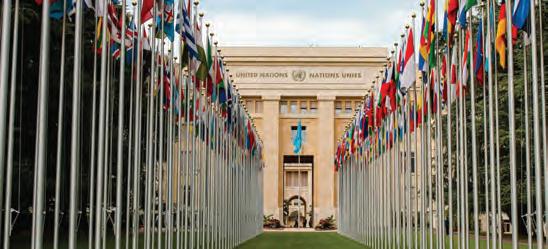
The Sabin Center’s Peer Review Network submitted
• comments in response to the African Commission on Human and Peoples’s Rights’ Call for Comments on the draft study concerning the impact of climate change on human rights in Africa.
• Michael Gerrard spoke about international adjudication and climate change loss and damage at the Human Rights Workshop Series at Yale Law School; he chaired a panel titled “The Role of International Courts/Tribunals in Promoting States’ Responsibility for Climate change” at the International Law Association annual conference at Fordham Law School; he also spoke at a Strategic Dialogue on Climate Action, Biodiversity Conservation, and Sustainable Investment in Latin America.
• Maria Antonia Tigre gave numerous talks on the intersection between human rights and climate change, including on “The Human Rights Dimension to the ICJ’s Advisory Opinion on Climate Change, Permanent Mission of Liechtenstein to the United Nations” at the Permanent Mission of Bulgaria to the United Nations; “Advisory Opinions on Climate Change before the ICJ, IACtHR, and ITLOS” at Doughty Street Chambers; and “Towards a Progressive ICJ Advisory Opinion on Climate Change” at the World’s Youth for Climate Justice. She also spoke at the International Law Weekend 2023 on “Leveraging International Law to Fight Climate Change: Limitations & Opportunities” and at the Scientific Knowledge and Human Rights General Unity of the Mexican Supreme Court of Justice on “Evidentiary Aspects of Environmental Cases. She gave presentations at Georgetown University, at the University of Copenhagen, on “Comparative Enforcement of International Law” at Rutgers Center for Transnational Law, at the American Society of International Law’s 2023 Annual Meeting on the Future of Latin American International Law, and at Charleston Law Review’s Annual Conference 2023.
• Tigre and Carolina Arlota participated in an expert seminar on “Identifying Enabling Conditions for the Recognition and Implementation of the Right to a Clean, Healthy, and Sustainable Environment at National Level,” hosted by the Geneva Academy. Arlota spoke on a webinar titled “COP 27: Recent Developments and Implications for the Upcoming Year,” hosted by the Climate Change, Sustainable Development, and Ecosystems Committee of the American Bar Association Section of Environment, Energy, and Resources. Arlota also chaired and moderated several panels, including at the 2023 Society for Benefit Analysis Conference at George Washington University, and a Law and Development panel of the Gujarat National Law University (GNLU) Center for Law and Economic Analysis of Law, Governance, and Public Policy.
12 | Annual Report
New Legal Tools
THREATENED ISLAND NATIONS
Climate change poses a substantial risk to many small island nations. These nations may be partially or completely submerged by rising sea levels in the coming decades and are also vulnerable to other disruptions caused by increasing temperatures and changing precipitation patterns. We have worked with threatened island nations since 2009 to develop legal strategies to address these problems.
Activities and Impact
• The Sabin Center and the Micronesia Center for Sustainable Transport cohosted a workshop on advancing climate action at the International Maritime Organization.
• Michael Gerrard gave a number of presentations on climate change impacts on small island states, including at a workshop held by the United Nations Department of Political and Peacebuilding Affairs; at a workshop on “Sea-Level Rise—Legal Implications for Statehood” hosted by the Global Centre for Climate Mobility at the United Nations Operations Support Office in New York; on a webinar hosted by United Nations Community of Practice on Climate Security; and as part of the Columbia Law School Admitted Students Program.
• Gerrard’s article “Statehood and Sea-Level Rise: Scenarios and Options” appeared in the Charleston Law Review at scholarship.law columbia.edu/faculty_scholarship/4178.
Select Media Mentions
• Inside the Marshall Islands’ life-or-death plan to survive climate change, Grist (December 5, 2023)
• U.N. establishes fund for developing nations affected by climate change, NBC News (November 30, 2023)
• Coalition of small island states makes a case that greenhouse gas emissions are covered by UN Law of the Sea, The World (September 15, 2023)
• The Story of Runit Dome, the Concrete ‘Tomb’ in The Marshall Islands That’s Filled with Deadly Nuclear Waste, All That’s Interesting (July 1, 2023)

The Sabin Center expanded its robust set of online resources in 2023 In addition to our existing resources—such as our Climate Change Litigation Databases, Climate Attribution Database, Carbon Dioxide Removal Law database, New York State and New York City Climate Law Trackers, Silencing Science Tracker, and Climate Reregulation Tracker, which are regularly used by practitioners—we launched three new tools in 2023:
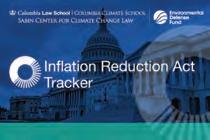
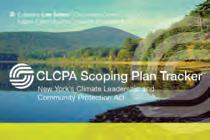

The Inflation Reduction Act Tracker
Launched in March 2023 in partnership with the EDF, the Inflation Reduction Act Tracker catalogs all the climaterelated provisions in the Inflation Reduction Act and monitors federal agencies’ progress in implementing those provisions.
Explore the tracker at iratracker.org
CLCPA Scoping Plan Tracker
Launched in July 2023, the Climate Leadership and Community Protection Act (CLPCA) Scoping Plan Tracker monitors New York’s progress in implementing the recommendations made by the Climate Action Council’s Scoping Plan under the CLCPA.
Explore the tracker at climate.law. columbia.edu/Scoping-Plan-Tracker.
Community Benefits
Agreements Database
Launched in September 2023, this database compiles a list of publicly available Community Benefits Agreements from climate-related projects, such as solar, onshore and offshore wind, fossil fuel infrastructure, transportation, waste management, and more. This database was launched in conjunction with the publication of a guidebook on Expert Insights on Best Practices for Community Benefits Agreements
Explore the database at climate.law columbia.edu/content/communitybenefits-agreements-database.
The Inflation Reduction Act Tracker
Community Benefits Agreements Database
Annual Report | 13
CLCPA Scoping Plan Tracker
New Designs and Social Media Platform
The Climate Law Blog
The Climate Law Blog was revamped in February 2023, leading to increased readership. Check it out at blogs.law columbia.edu/ climatechange.
Website Home Page We also revamped our website’s home page for easier navigation and more appealing visuals. Check it out at climate. law.columbia.edu
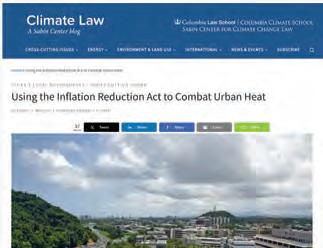
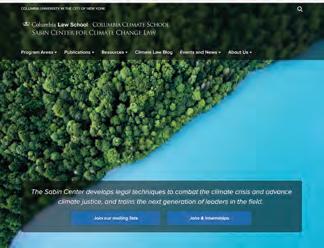
Instagram
In September 2023, we created an Instagram account to broaden our social media strategy and reach. As of February 2024, we had 230 followers. Check it out at instagram. com/sabincenter. We continue to be highly active on all our social media platforms, disseminating information about new developments in climate law via Facebook, X (formerly Twitter), and LinkedIn. We have over 11,000 followers on X; over 2,700 followers on Facebook; and over 4,000 followers on LinkedIn
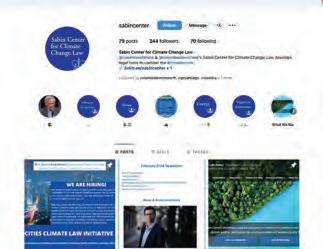
2023 Events
In 2023, the Sabin Center hosted or cosponsored 17 in-person events, conferences, and webinars, which were attended by more than 2,500 people. All past events are all listed at climate.law.columbia.edu/ events/past. Below is a list of the events held in 2023.
Featured Events
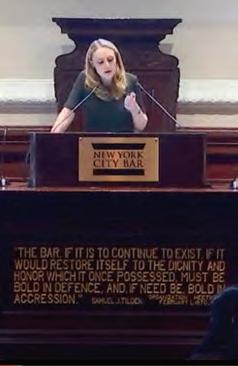
Real Solutions or Expensive Distractions? Proving or Disproving Ocean-based Carbon Dioxide Removal in the Next 5 Years
This Climate Week NYC event was cohosted by the Sabin Center and Ocean Visions at the New York City Bar Association. Our deputy director, Romany Webb, discussed the need for legal reform in the ocean-based carbon removal space.
Key Environmental Issues in U.S. EPA Region 2
The Sabin Center hosted its biennial conference, Key Environmental Issues in U.S. EPA Region 2, cosponsored by EPA and the American, New York State, New Jersey, and New York City bar associations, which examined key environmental issues in the Environmental Protection Agency Region 2 area, which includes New York, New Jersey, Puerto Rico, and the Virgin Islands. Michael Gerrard chaired the conference.
Tracking the Inflation Reduction Act: Benefits to Date from America’s Biggest Climate Investment, and What Comes Next
The Sabin Center and Environmental Defense Fund cohosted a webinar in which experts discussed progress and next steps with the implementation of the Inflation Reduction Act. The video is available at youtube.com/ watch?v=e6Kjq6iyDwc
Strategic Climate Change Litigation In Brazil—2020 to 2023
The Sabin Center and Brazilian Climate Observatory (Observatório do Clima - OC) cohosted a half-day event that aimed to foster insightful discussions surrounding Brazil’s climate change litigation between 2020 and 2023.
Does Antitrust Help or Hinder Sustainability?
The Sabin Center and the Columbia Center on Sustainable Investment (CCSI) cohosted a webinar that explored how antitrust enforcers, lawyers, and researchers can collaborate to support planetary goals while providing clarity for private-sector actors.
14 | Annual Report
Electricity System Decarbonization: Where We Stand and the Challenges Ahead
The Sabin Center, together with Energy Innovation, hosted a panel discussion at which top energy regulators around the world shared their experiences with moving from fossil fuel to renewable energy systems.
Corporate Net Zero Pledges: Are Nature-Based Offsets Legitimate?
The Sabin Center and ClientEarth cohosted a Climate Week NYC panel discussion exploring the key challenges—and evolving legal implications— for corporations that rely on nature-based offsets to meet their zero pledges.
Twin Crisis: Sovereign Debt and Climate
The Sabin Center, along with CCSI, IFEP, CSIL, and Ci3, sponsored a talk by Christine Laskaridis that covered how growing debt crises and the climate emergency are raising significant problems with respect to how mitigation and adaptation will be paid for, among other topics.
Learning Series to Inform New York’s Development of an EconomyWide-Cap-and-Invest Program
Cohosted by the Sabin Center, Georgetown Climate Center, and Resources for the Future series on New York’s climate plans. Michael Gerrard moderated several panel discussions.
The Peer Review Network of Climate Litigation hosted a series of webinars in 2023. Below is a full list of these events.
• Advisory Opinions on Climate Change: An Overview of a Quartet of Simultaneous Requests — The Sabin Center hosted a webinar on the “quartet of initiatives” to request advisory opinions on climate change from various judicial bodies in three panels.

• –
The Climate Docket at the European Court of Human Rights
The Sabin Center hosted a half-day conference, which provided an overview of the “Climate Docket” of the European Court of Human Rights and featured a detailed discussion of the three cases heard by the Court at the end of March 2023.
• Climate justice for children and future generations: current trends in climate change litigation and children’s rights law –This webinar focused on youth-led climate litigation in different jurisdictions, with a focus on understanding the legal, political, and social challenges to a successful outcome.
• Just Transition Litigation in Latin America: Initial Lessons – This webinar aimed to present the findings of the report Just Transition Litigation in Latin America: An Initial Categorization of Climate Litigation Cases Amid the Energy Transition.
Climate Litigation in 2023
• – The Sabin Center hosted its end-ofyear webinar on global climate change litigation, featuring a variety of speakers from the Peer Review Network of Climate Litigation.
Annual Report | 15
The Peer Review Network of Climate Litigation
Awards and Recognition
• Our executive director, Michael Burger, was awarded a research grant from the Climate Hub Rio to embark on groundbreaking research on climate litigation in Brazil.
• Michael Burger was featured among the “Power Players in Climate, Energy and Sustainability” in Politics NY.
Columbia Spectator
• published an article profiling the Sabin Center—its leadership under Michael Gerrard and Michael Burger; its groundbreaking and prolific research, resources, and initiatives; and how it is “carving out its role in developing a new era of climate law.”
• Michael Gerrard was named to the Lawdragon Hall of Fame, a guide to leading US lawyers.
Climate School
The Sabin Center is an affiliated center of the Columbia Climate School and frequently collaborates with scientists and other experts at the Climate School on cutting-edge interdisciplinary research. Center faculty and staff are deeply involved in the development of the Climate School at multiple levels.
• Michael Gerrard was appointed as a member of the faculty of the Climate School, as a joint appointment to the Law School faculty. He spoke at an event, “Considering Oppenheimer’s Legacy: On Ethics, Storytelling, and Nuclear Technology,” part of Climate School Earth Network’s “Bridging Scientific and Artistic Approaches” series.
• Romany Webb was appointed an adjunct assistant professor at the Climate School; she taught a course titled Social, Ethical, and Governance Considerations for Greenhouse Gas Removal, as part of the Climate School’s Masters of Climate and Society program; and the course Climate Risk and the Law, as part of the Climate School’s Professional Learning program.
• Webb presented on governance of carbon dioxide removal at a Climate School “Earth Series” event in New York City; she also presented at an NYC Climate Week Event on “carbon markets, nature, rights, and climate justice” hosted by the Climate School.
• Gerrard and Webb continue to collaborate with David Goldberg at Lamont Doherty Earth Observatory on research related to offshore carbon sequestration, including participating in the Solid Carbon Project.
• Gerrard continues to serve on the Advisory Committee for SCoPEx, a Harvard-based project to study the effect of stratospheric aerosols that could be relevant to solar geoengineering.
• Michael Burger and affiliated researcher Jessica Wentz continued to work with Radley Horton, associate research professor at Lamont Doherty Earth Observatory, on the interdisciplinary research project The Law and Science of Climate Change Attribution.
• The Sabin Center engaged with the Earth Institute’s Diversity, Equity, Inclusion and Ant-Racism planning process, and developed and published a Sabin Center DEIA plan
16 | Annual Report
Looking Ahead
We look forward to further expanding our work, increasing our impact, and growing our team in 2024!
Please see how you can support our work in advancing climate action at climate.law. columbia.edu/content/support-us. You can also support our work by joining our mailing lists to stay up to date on the latest news in climate and energy law.
Our Mission
The core mission of the Sabin Center is to develop and promulgate legal techniques to address climate change, and to train the next generation of lawyers who will be leaders in the field. The Sabin Center is both a partner to and resource for public interest legal institutions engaged in climate change work. Further, the Center addresses a critical need for the systematic development of legal techniques to fight climate change and the compilation and dissemination of information for lawyers in the public, private, and NGO sectors.
Columbia Law School is specially situated to make fundamental contributions to the development of the legal structures needed to address climate change. As one of the world’s preeminent law schools, its faculty has unsurpassed depth in the many legal disciplines that must be harnessed to address the critical issue of climate change. This initiative benefits from great synergies with the school’s other centers and programs around Columbia University.
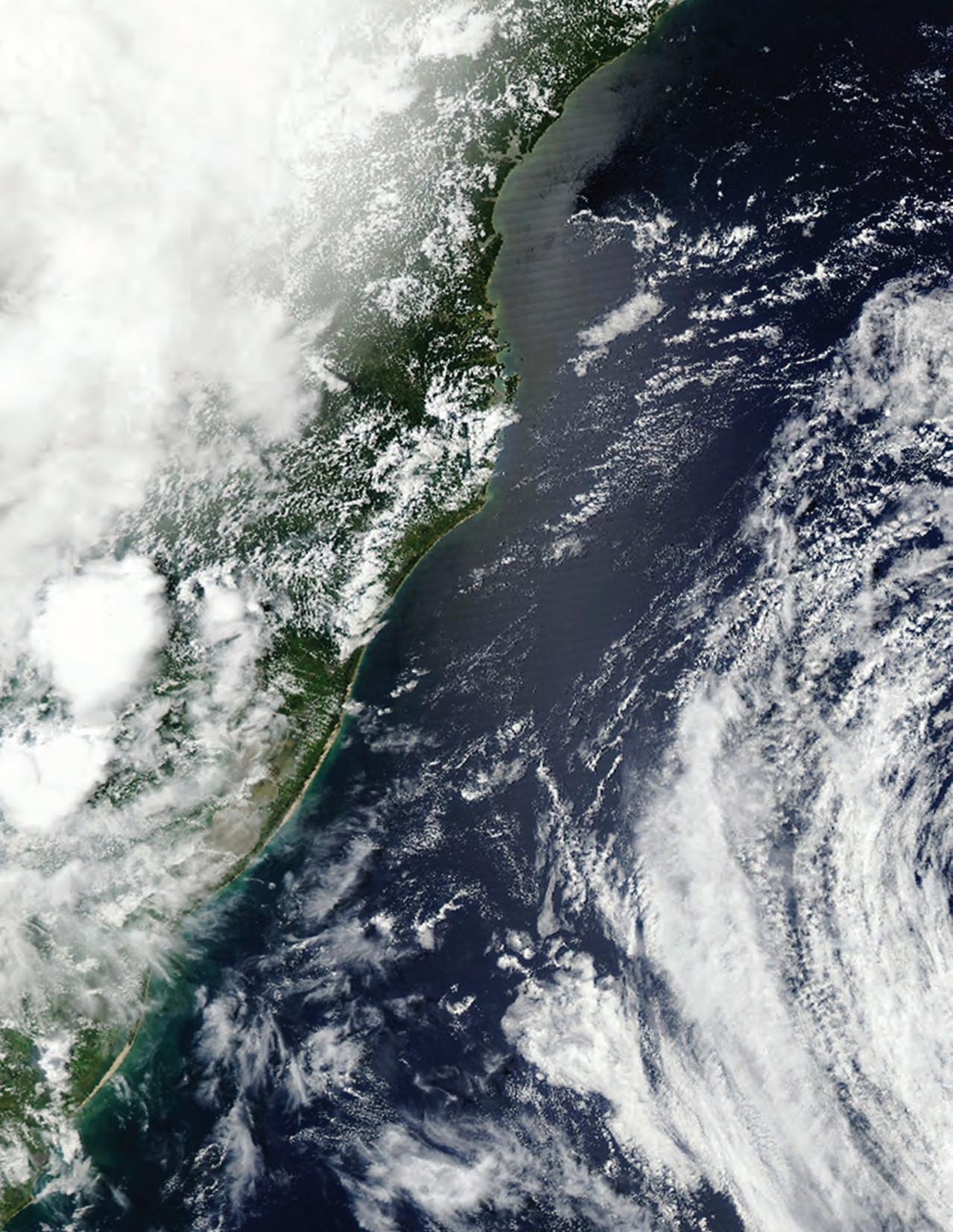
SABIN CENTER FOR CLIMATE CHANGE LAW Columbia Law School 435 West 116th Street New York, NY 10027 climate.law.columbia.edu
































